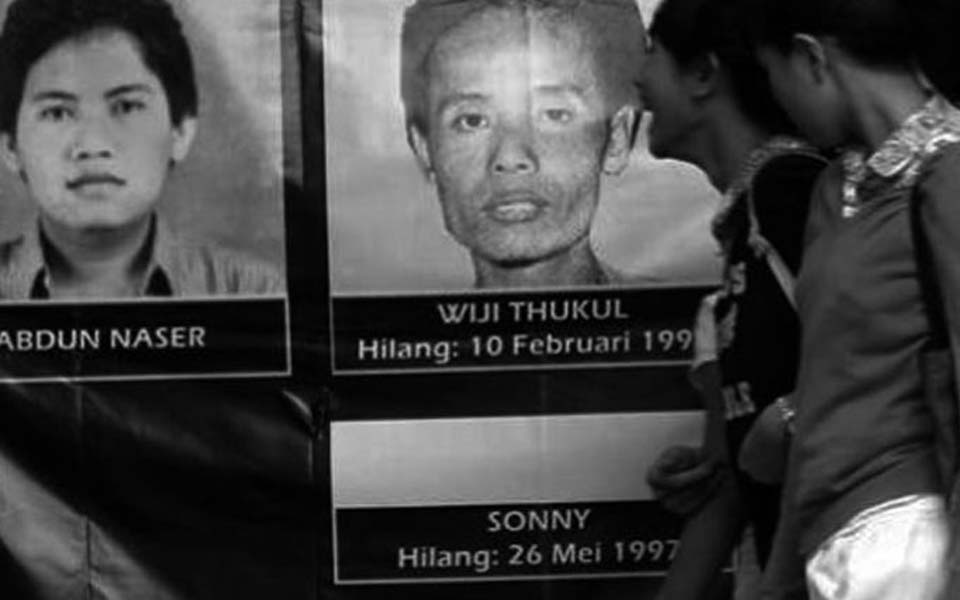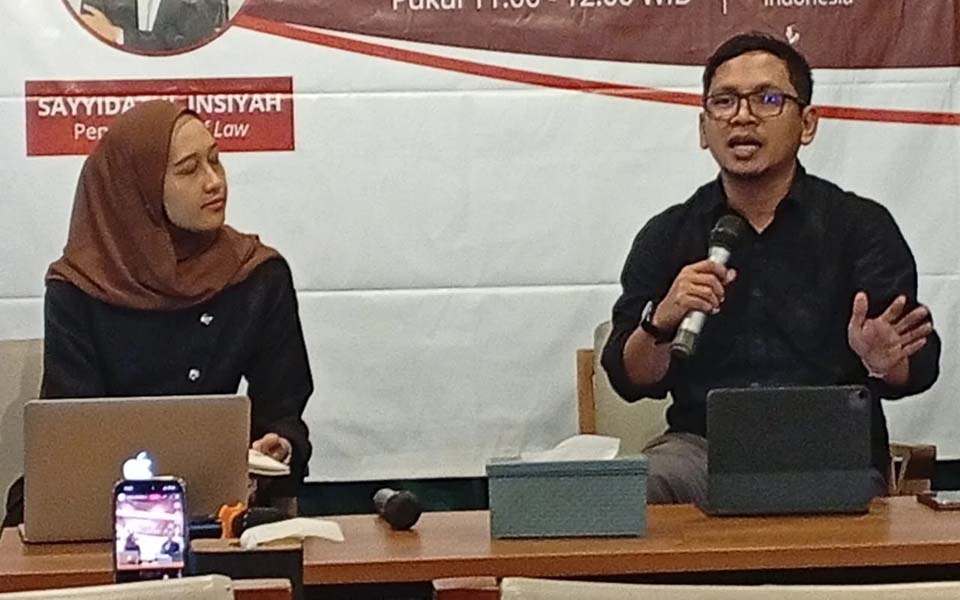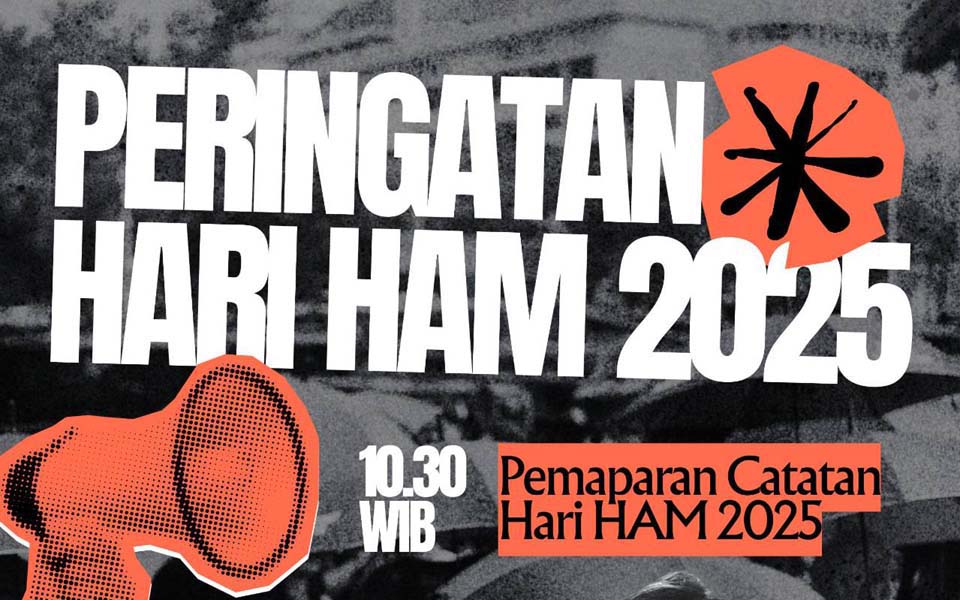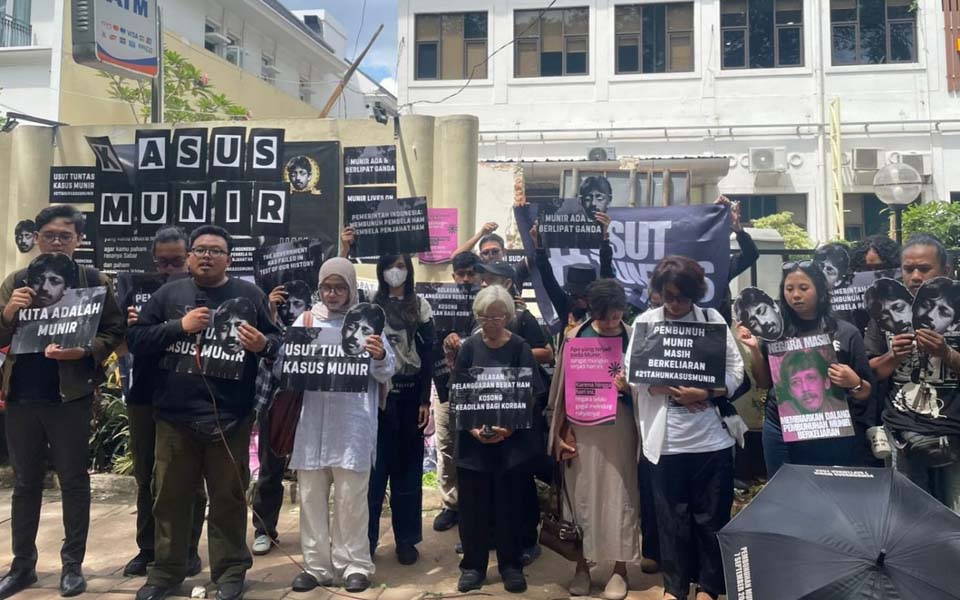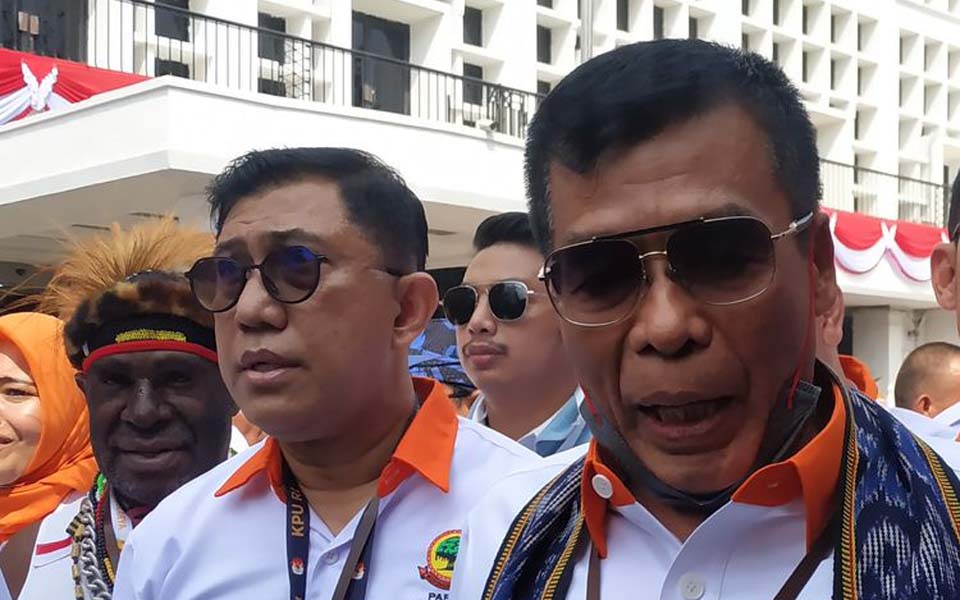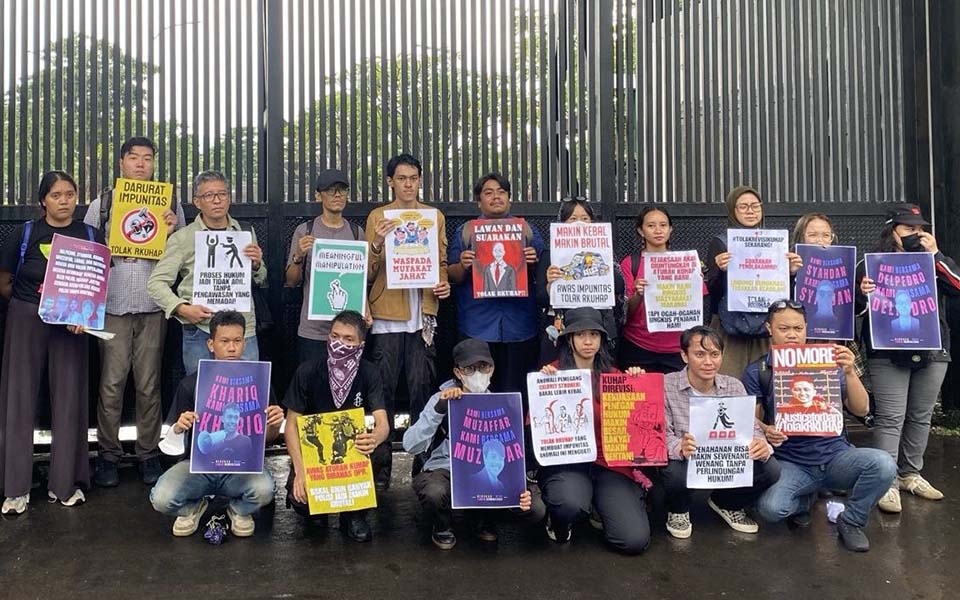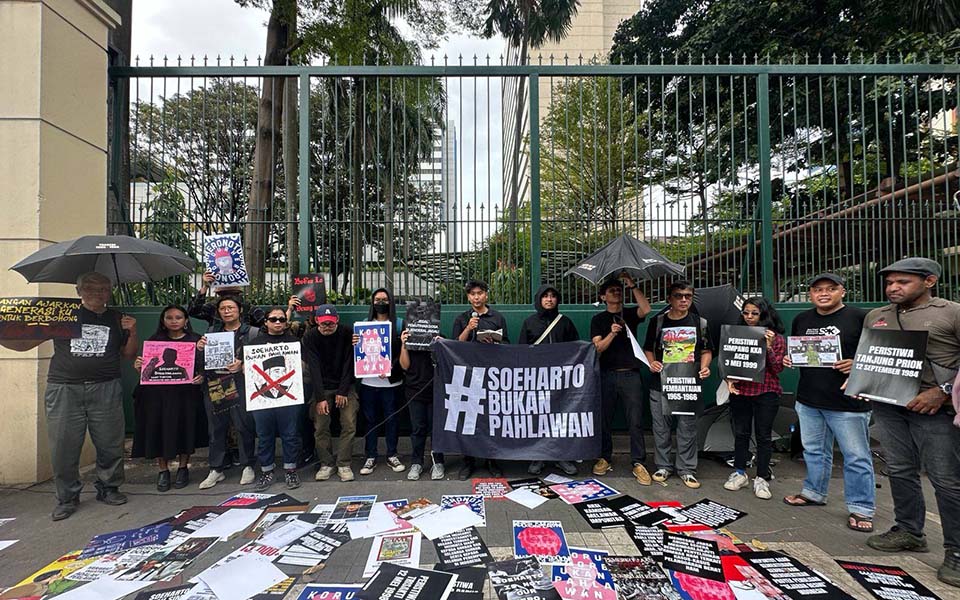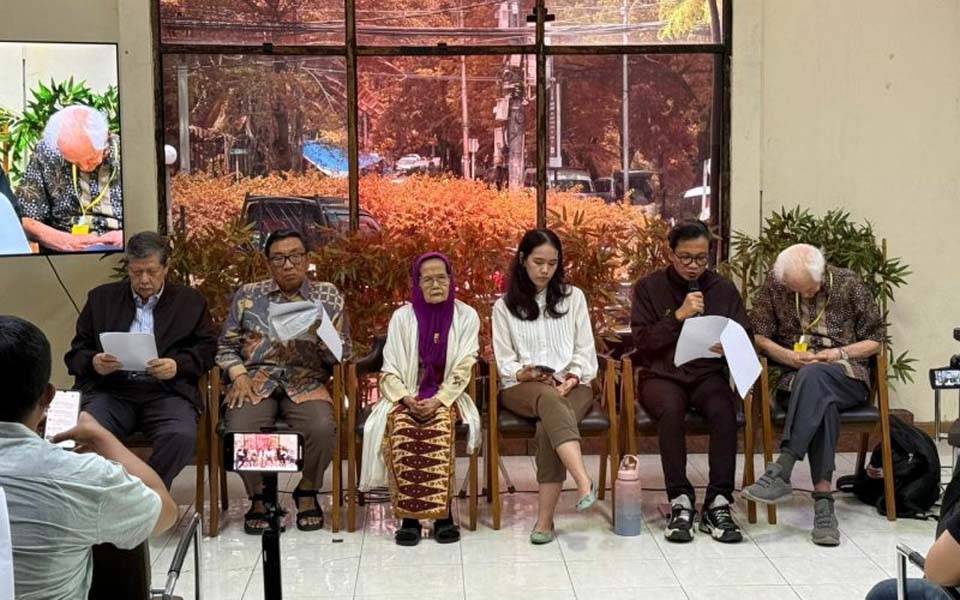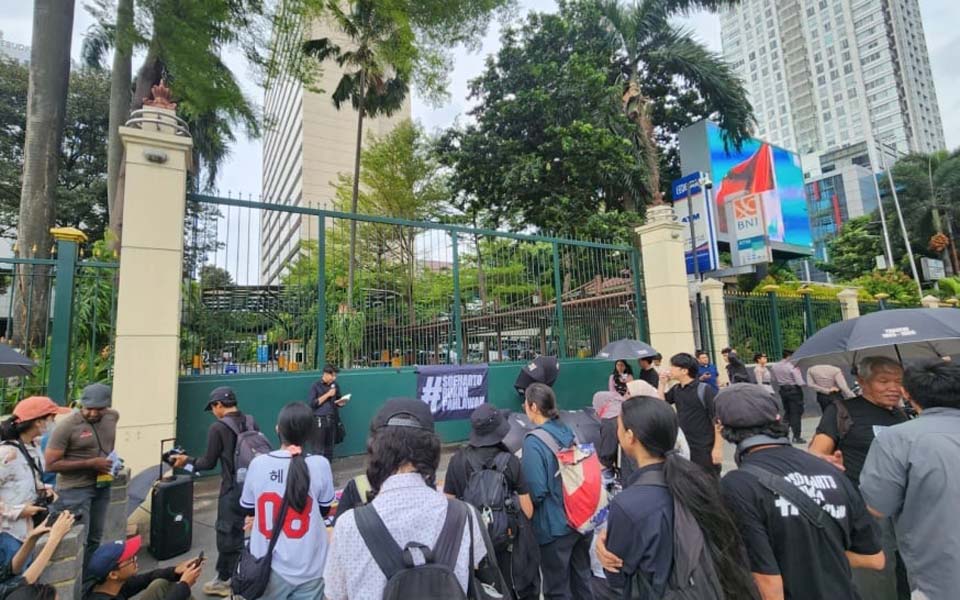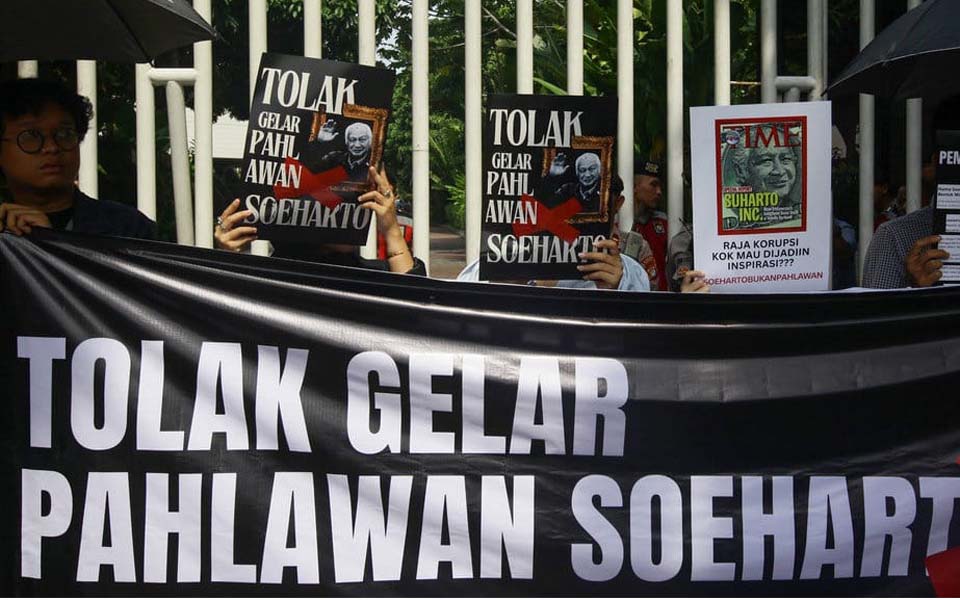Every year from May 26 to 31, the international community commemorates Enforced Disappearance Week. This commemoration began with the actions by the families of victims of enforced disappearances in Latin America who are members of the Latin American Federation of Associations for Relatives of Disappeared-Detainees (FEDEFAM), widely known through the "Mothers of the Plaza de Mayo" movement.
For a week, they demand that the state be held accountable for the disappearance of their family members under authoritarian rule in Argentina in the 1980s. The movement then spread to various parts of the world, including Indonesia, because the practice of enforced disappearances also occurs in many other countries.
Over time, this spirit of struggle spread to various countries, including Indonesia, which also has a long history of enforced disappearances under authoritarian regimes.
This situation triggered the birth of the International Convention for the Protection of All Persons from Enforced Disappearance (ICPPED) that is also known as the Convention Against Enforced Disappearances, which was then ratified by the United Nations General Assembly on December 20, 2006. This convention strengthens the international legal basis in preventing and prosecuting the practice of enforced disappearances, and is the main reference in this annual commemoration.
In Indonesia, enforced disappearances are not just a part of past history, but a gaping wound that continues to this day. The Commission for Missing Persons and Victims of Violence (Kontras) recorded that there were 32,774 people missing in the 1965-66 incident, 1,935 people missing during the implementation of the Military Operations Area (DOM) in Aceh (1989-1998) and 23 people missing with only nine people having returned in the 1997-98 abduction of pro-democracy activists.
Pro-justice investigations by the National Human Rights Commission (Komnas HAM) also found that enforced disappearances occurred in other incidents, namely the mysterious shootings (Petrus) in 1982-1985, the Tanjung Priok shootings in 1984, the Talangsari massacre in 1989, Rumoh Geudong and Pos Sattis in Aceh in 1989-1998, East Timor in 1999, the Wasior Tragedy in Papua in 2001-2002 and Timang Gajah in Central Aceh in 2001.
Aside from gross human rights violations, enforced disappearances also occurred in the Sentani incident in 1970, the July 27, 1996 incident, the Bloody Biak Tragedy in 1998, enforced disappearances after the DOM period in Aceh, including two Aceh Kontras volunteer activists who disappeared in 2003, the forced relocation of thousands of East Timorese children from 1975 to 1999 (the stolen children), the enforced disappearance of prominent Papuan independence leader Theys H. Eluay and his driver Aristotle Masoka, the militarisation in Papua and the short-term enforced disappearance of the majority of the Peringatan Darurat (Emergency Warning) protesters in August 2024, especially in Jakarta and Banda Aceh.
Unfortunately, out of all the cases of enforced disappearances that have occurred in Indonesia, not one has been resolved by the state with substantive respect for the dignity of the victims.
And to this day the state has not shown any seriousness in resolving these cases. Not a single perpetrator has been tried fairly, the victims have not received proper restitution, and efforts to uncover the truth are still stagnant. Moreover, the practice of impunity continues to be allowed, even perpetrators who are strongly indicated to be involved in enforced disappearances still occupy important positions in the state structure, namely the security forces, both in the National Police (Polri) and the Indonesian Military (TNI). The absence of the state's commitment to ratify the ICPPED is also related to the absence of human rights issues in the Asta Cita document, which outlines the direction of the President Prabowo Subianto and Vice President Gibran Rakabuming Raka government's policies.
The Coalition Against Enforced Disappearances hereby affirms that the state's responsibility is not only moral, but also legal. The Indonesian Constitution and Law Number 39/1999 on Human Rights guarantee the right of every person to be free from enforced disappearance. However, these promises have not been translated into concrete actions. One important step that has not been taken is the ratification of the ICPPED, which was signed on September 27, 2010.
This convention represents a very important legal instrument because it covers the main elements in handling enforced disappearances, starting from a clear definition, the protection of victims and their families, to the state's obligation to carry out prevention, investigation, prosecution and law enforcement against perpetrators. In the midst of the vacuum in Indonesian legal instruments regarding enforced disappearances, the ICPPED could actually be present to fill the vacuum as a preventive and corrective mechanism. Moreover, so far Indonesia has not had a law that regulates enforced disappearances outside of systematic or widespread patterns, and also does not regulate the excesses caused by this crime such as residency status, the rights of children who are forcibly disappeared, the rights of victims to investigation and so forth, so that enforced disappearances are still very susceptible to reoccurring in Indonesia.
The Coalition Against Enforced Disappearances therefore urges:
- The House of Representatives (DPR) to immediately ratify the ICPPED as a real commitment to the protection of human rights and the prevention of future enforced disappearances;
- The Attorney General's Office to conduct investigations into cases of serious human rights violations, especially those involving enforced disappearances;
- The government to provide comprehensive and dignified restitution to the families of victims, including for search efforts imposed on families, not just in the form of material assistance, but also in the form of revealing the truth, confessions, the prosecution of perpetrators, guarantees of non-recurrence and civil restitution in population administration by recording the victim's status as "enforced missing";
- Ministry of Culture to include writings about forced disappearances that occurred during the New Order government of former president Suharto as part of history in the education curriculum; and
- The Government, the Indonesian National Police and the Indonesian Military to stop the practice of enforced disappearances and not provide impunity for the perpetrators, including by carrying out vetting and lustration.
Jakarta, May 27, 2025
Coalition Against Enforced Disappearances
[Translated by James Balowski. The original title of the article was "Pekan Anti Penghilangan Paksa: Mengingat Mereka yang Dihilangkan, Menuntut Tanggung Jawab Negara".]





